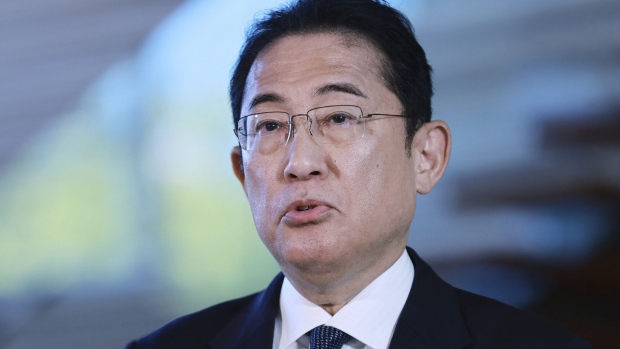Sep 5, 2023
Japan Seeks China Dialogue as Leaders to Cross Paths at Asean
, Bloomberg News

(Bloomberg) -- Top officials of Japan and China discussed their disagreements over Tokyo’s disposal of treated wastewater from the ruined Fukushima nuclear plant at the Asean leaders’ summit in Jakarta.
Japanese Prime Minister Fumio Kishida and Chinese Premier Li Qiang spoke briefly one-on-one and had a more extended exchange at a forum with Southeast Asian leaders and South Korean President Yoon Suk Yeol on Wednesday, according to statements from Japan’s Ministry of Foreign Affairs.
Kishida reiterated Japan’s stance on the wastewater disposal, saying it’s being conducted with utmost attention to safety. He brought up Beijing’s suspension of seafood imports from Japan, urging the Chinese government to act in accordance with scientific data.
Li called on Japan to handle the water release responsibly, saying it concerns the marine environment and people’s health, China’s Xinhua News reported. Li also asked Japan to fully consult with its neighbors, according to the report.
Read more: China’s Fury Over Fukushima Water Casts Pall on Asean Forum
China has been the most vocal opponent to Japan’s move, even though the International Atomic Energy Agency has determined that the practice meets global safety standards. Beijing retaliated by suspending all seafood imports from Japan. There are also reports of harassment and abusive behavior toward Japanese people in China in response to the release.
“Many countries understand the way Japan is dealing with this. In this situation, China’s complete suspension of Japanese seafood imports stands out,” Kishida told reporters on Wednesday.
He added that there’s no decision yet on whether he would speak with Li at the Group of 20 summit in India this week. The Chinese premier is attending the event as President Xi Jinping looks set to skip.
Read more: Xi Protege Steps Onto World Stage After China Leader’s G-20 Snub
Japan said this week it has requested discussions with China under the Regional Comprehensive Economic Partnership over the seafood ban. Both countries are members of the pact, which also includes other Asia-Pacific nations such as South Korea, Indonesia and Singapore.
Japan has warned of potential World Trade Organization action against China. Tokyo this week submitted its argument to the WTO explaining the safety of the release. It also urged China to “immediately repeal” its import suspension.
While the loss of China as an export market for items like scallops will have only a minimal effect on Japan’s overall economy, the government is anxious to maintain the reputation of its food and protect its fishing industry.
Japanese officials have made extensive efforts to persuade various countries to remove remaining restrictions on Japanese food imports since the 2011 earthquake and tsunami that wrecked the Fukushima Dai-ichi nuclear plant.
--With assistance from James Mayger.
(Updates with latest information throughout)
©2023 Bloomberg L.P.






